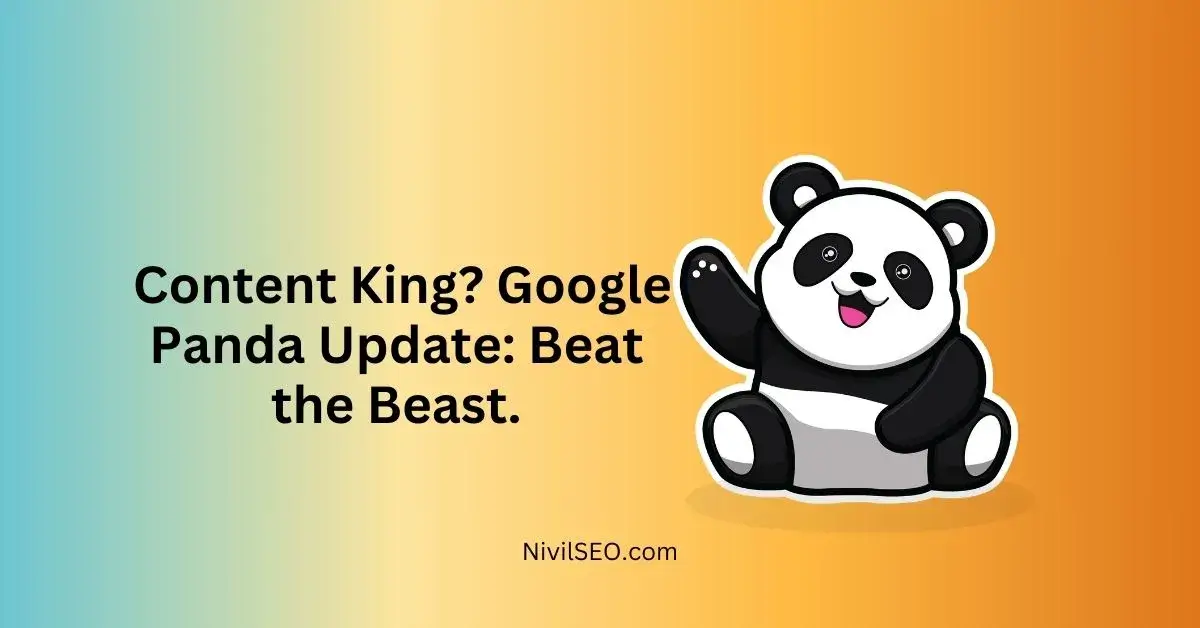Indeed, everyone felt the earthquake within the trenches of SEO. There was no tremor-this was a full paradigm shift. The year was 2011, and Google unleashed upon the world the Panda update in search engine optimization forever changing the lay of the land. As an SEO expert, I knew it was no passing storm. It was a new era, and websites that didn’t adapt would be left buried in the digital dust.
Prior to the Panda problem, SEO tactics often revolved around keyword stuffing and exploiting loopholes in Google’s algorithms. But Panda introduced a new sheriff in town: content quality.Content farms that drenched websites with rank low-value content for the sole purpose of ranking were sent out the door.
The Rise and Fall of Content Farms
Content farms were the black hats of the content world – factory-like operations producing mass quantities of bland, crappily researched articles on every topic imaginable. Their purpose? To game the system, rank for a gazillion keywords, and capture unsuspecting search traffic.
That it did, for some time. But Panda killed the charade on content, courtesy of Google. That update ushered into algorithms that can sniff out low-quality content with uncanny accuracy. Keyword density was no longer enough. Google required depth, substance, and actual value for the user.
From Chasing Keywords to Building Expertise
The Panda update made everyone rethink everything. Here is how I approached the challenge for my clients:
- Content Audits: We did thorough content audits to identify thin content and areas for improvement. This involved analyzing content depth, originality, and user engagement metrics.
- User Focus: We shifted our content strategy from keyword-centric to user-centric. We asked ourselves: “What information are users truly looking for?” and “How can we provide the most valuable and informative content on this topic?”
- Expertise & Authority: We built content around establishing expertise and authority in our clients’ niches. This involved featuring content from industry thought leaders, conducting original research, and providing data-driven insights.
- Engaging Writing: We focused on clear, concise, and engaging writing that kept users interested. Gone were the days of robotic, keyword-stuffed content.
Panda wasn’t just about outranking competitors anymore. It was about building content worthy of ranking. High-quality content became a cornerstone for any successful strategy in SEO. Content was informative, educational, or entertaining to users. Building trust and authority.
The Lasting Impact of Panda
Surely, Panda left an indelible mark on the SEO world. It made every marketer do away with thin content creation, ushering in a new, user-centric era of search engine optimization. Where all Google algorithms are constantly updating, the core philosophy about Panda will remain: quality rules, and content is the king.
Panda lessons can assist the SEO expert in creating more relevant yet higher-ranking content besides enabling a brand to gain sustainable authority.
Conclusion
Know about ‘The Panda Problem.’ It is important in fetching a better rank of the search for your website. In NivilSEO, being an SEO expert in Dubai, we point out high-quality content as an important ranking factor. Try focusing on the kind of value-driven, relevant, and user-friendly content you have that could help you traverse these difficulties of the Panda algorithm, thereby helping to further optimize your site’s search performance. Trust NivilSEO with the complexities of your online search engine optimization; this can lead you to your successful online existence.










